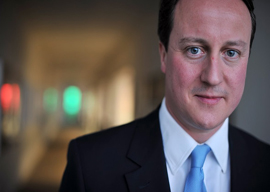
October 25, 2010

Before the Tea Party philosophy is ever even tested in America, it will have succeeded, or it will have failed, in Great Britain.
For in David Cameron the Brits have a prime minister who can fairly be described as a Tea Party Tory. Casting aside the guidance of Lord Keynes—government-induced deficits are the right remedy for recessions—Cameron has bet his own and his party’s future on the new austerity. He is making Maggie Thatcher look like Tip O’Neill.
Two headlines Thursday testify that the Tories have seized the Tea Party banner. First was the headline in The Washington Times, “Tea Party Urges Drastic Cutting,” that carried a caveat subhead, “Economists Question If Move Is Wise at This Time.”
Second was the Financial Times banner, “UK Unveils Dramatic Austerity Cutbacks.” The FT story begins, “The U.K.‘s conservative-led coalition has announced the most drastic budget cuts in living memory. …
“The sweeping cuts in entitlements and spending far exceed anything contemplated in the U.S., where Barack Obama … has proposed only a three-year freeze on discretionary spending and Congress is still debating whether to extend tax cuts for the wealthy.”
The Tory budget cuts defense 8 percent and military personnel by 7,000. Translated here, that would mean a cut of $60 billion and about 100,000 soldiers, sailors, airmen and Marines.
By 2015, some 490,000 public-sector employees, 8 percent of the total, will lose their jobs. The rest will have their wages frozen for two years and face a 3-percent-of-salary hike in compulsory contributions to their pension program. The retirement age will rise from 65 to 66.
France is in the 10th day of demonstrations, strikes and riots over President Sarkozy’s plan to raise the retirement age to 62.
If Cameron’s plans take effect and his projections prove correct, Britain’s deficit will fall from 10 percent of gross domestic product to 2 percent.
Writes the FT, “The UK cuts … over four years are the equivalent of 4.5 percent of projected 2014-2015 gross domestic product. Similar cuts in the U.S. would require a cut in public spending of about $650 billion.”
Nothing like that is being discussed here, and even if Republicans capture the House, cuts of that magnitude appear out of the question. The correlation of forces would not permit it.